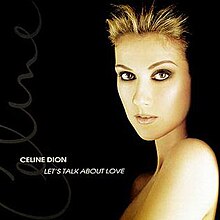The setup: 33 1/3 gave a hipster dude one year and the most horrible of tasks: to learn to appreciate Dion's music. What makes the book so awesome is that the dude actually gets there. By the end of the book, he states that he really, truly enjoys Dion's music, and this reader completely believes him.
How did he get there? First, he acknowledged that, technically, Celine Dion is amazing. Each and every person reading this blog has rolled their eyes at Dion's "oversinging," but we should all be able to admit that her voice is amazing, that there's nothing she can't do with it. So why do so many people have such a visceral negative reaction to Dion's music, when she's such an obvious, undeniable talent?
The author's contention is that the hate stems from the class consciousness of the listener. He shows how Dion's music has its roots in genres traditionally favored by the working class, genres that upper and middle class listeners have learned to reject as a way to separate themselves from "the rabble." The pop culture industry took that class consciousness and made it mass consciousness. In other words, they made it uncool. I don't want to like something that sounds like something the female students at Tech School might listen to.
In short, what we think of a piece of art depends highly on the trappings that surround it. Dress something (like country music) up in the clothes of Red America, and people like me are going to hate all of it, even despite the undeniable talent of someone like Alan Jackson. Dress something up in upper middle class clothes, language, mannerisms, and experience, and people like me will fall for it.
I can't stop thinking about that review when I hear people talk about Girls. If you like Girls, bully for you. I liked Entourage, because it was a fairy tale very typical to someone of my age at that point in time. However, I never claimed that Entourage was particularly good or meaningful. Girls is getting such accolades, and we have the class trappings of the show and its target audience to thank for it.
Girls is not original, profound, or even particularly well done. It trades in exactly the same shock aesthetic as the worst reality TV: promiscuous sex, bad behavior, and balling with no concern for real life trivialities like a job. It's JUST rich 20 something white girls pretending to be broke but otherwise acting like Real Housewives. You can argue that allowing young women a venue to express their sexuality on their terms is a good thing, but it's not like that hasn't been done before. Sure, there's some angst, but that's because, in the upper class 20 something worldview, there's SUPPOSED to be angst. It's not a very fulfilling fairy tale for the rich and elite if they don't rage against something. If you're just happy all the time, you must be stupid. You probably like Celine Dion or something.
But unlike the Real Housewives, these girls wear respectable clothes. They went to the right schools. Their vocabulary could ace the SAT Verbal. And, of course, Lena Dunham comes from NYC art royalty, so how could she possibly make something mundane? These cues, and these cues alone, have been enough to convince Very Important People (thanks, Paul) that Girls is an important snapshot of our cultural gestalt.
I don't begrudge the twenty something who are into the show, because, shit, every generation should get to retell the same old story in a way that resonates with them. If young women want their own Entourage, they should get it and enjoy it. What bothers me is older folks who should know better.
PS: I'm willing to grant a little ground on one of the most criticized aspects of the show, which is Lena Dunham's willingness to be naked on screen. Potentially positive message about body types and beauty there.

No comments:
Post a Comment